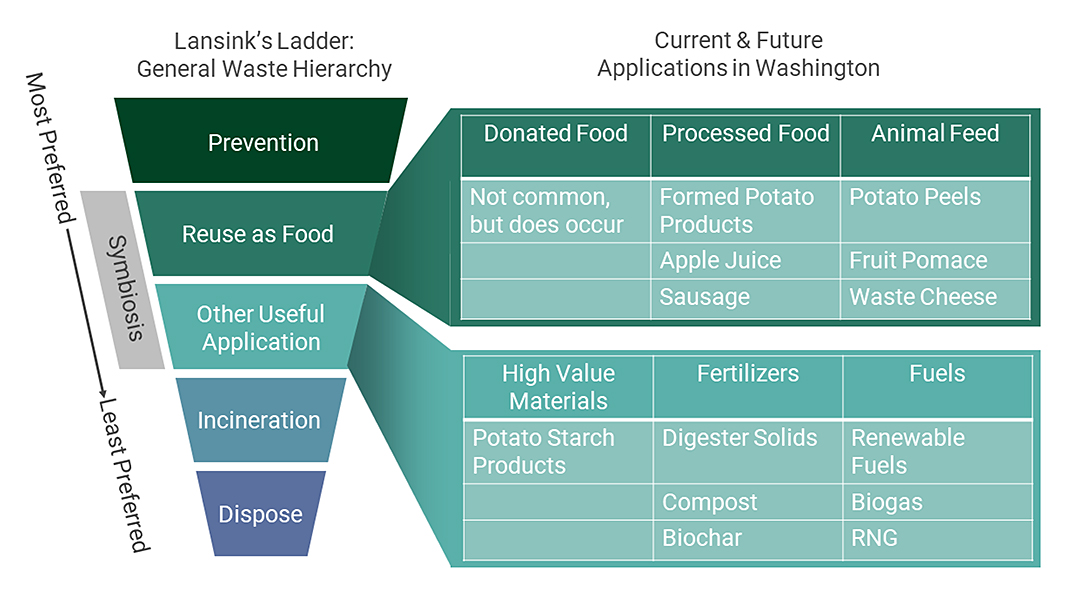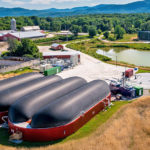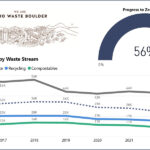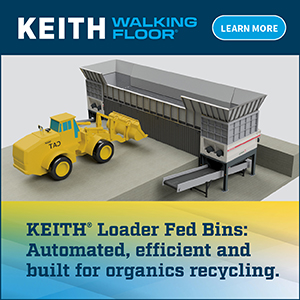Top: Illustration of symbiosis in the Food Recovery Hierarchy as it applies to Washington State. Image courtesy of WSU Agriculture Symbiosis report
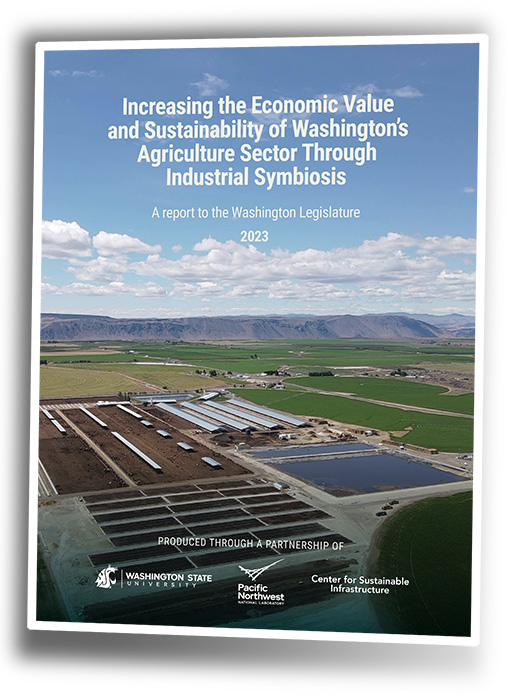 The 2022 Washington State Legislature directed Washington State University (WSU) to partner with organizations with relevant expertise to “develop recommendations for increasing the economic value and sustainability of Washington’s agriculture sector through the use of industrial symbiosis principles.” Within the agricultural sector, “Agriculture Symbiosis happens when food, beverage, or farm businesses partner with each other, or with businesses from other industry sectors, to share their surplus resources — energy, water, and organic ‘wastes’ — for mutual economic benefit,” states the report prepared for the legislature and just released to the public. WSU collaborated with the Center for Sustainable Infrastructure (CSI) and the Pacific Northwest National Laboratory (PNNL) to prepare the report, Increasing the Economic Value and Sustainability of Washington’s Agriculture Sector Through Industrial Symbiosis, which identifies new opportunities for cost savings and additional revenue streams for farmers and food processors across the state of Washington.
The 2022 Washington State Legislature directed Washington State University (WSU) to partner with organizations with relevant expertise to “develop recommendations for increasing the economic value and sustainability of Washington’s agriculture sector through the use of industrial symbiosis principles.” Within the agricultural sector, “Agriculture Symbiosis happens when food, beverage, or farm businesses partner with each other, or with businesses from other industry sectors, to share their surplus resources — energy, water, and organic ‘wastes’ — for mutual economic benefit,” states the report prepared for the legislature and just released to the public. WSU collaborated with the Center for Sustainable Infrastructure (CSI) and the Pacific Northwest National Laboratory (PNNL) to prepare the report, Increasing the Economic Value and Sustainability of Washington’s Agriculture Sector Through Industrial Symbiosis, which identifies new opportunities for cost savings and additional revenue streams for farmers and food processors across the state of Washington.
The researchers’ scan of agriculture symbiosis projects in Washington State identified 18 that “appear to meaningfully reflect industrial symbiosis principles and are in active operation or development.” Many of the projects involve anaerobic digesters to treat food waste, livestock manure and industrial wastewater. One project at Royal Dairy in Royal City, cleans and recycles washwater from milking barns via a 7-acre BioFiltro worm bed made of locally sourced wood waste. The worms filter and clean the washwater and produce worm casting, an organic soil amendment. Other technologies and systems utilized by some projects include composting, insect farming and biochar.
The study recommends that the legislature can support expansion of agriculture symbiosis (AS) in four ways:
- Coordinate and invest in AS programs in concert with programs supporting clean industry
- Support market accelerator research targeting key opportunities for AS
- Help key state programs and industry to strategically align services to support AS innovators
- Forge collaboration agreements with countries and states who are symbiosis innovation leaders


